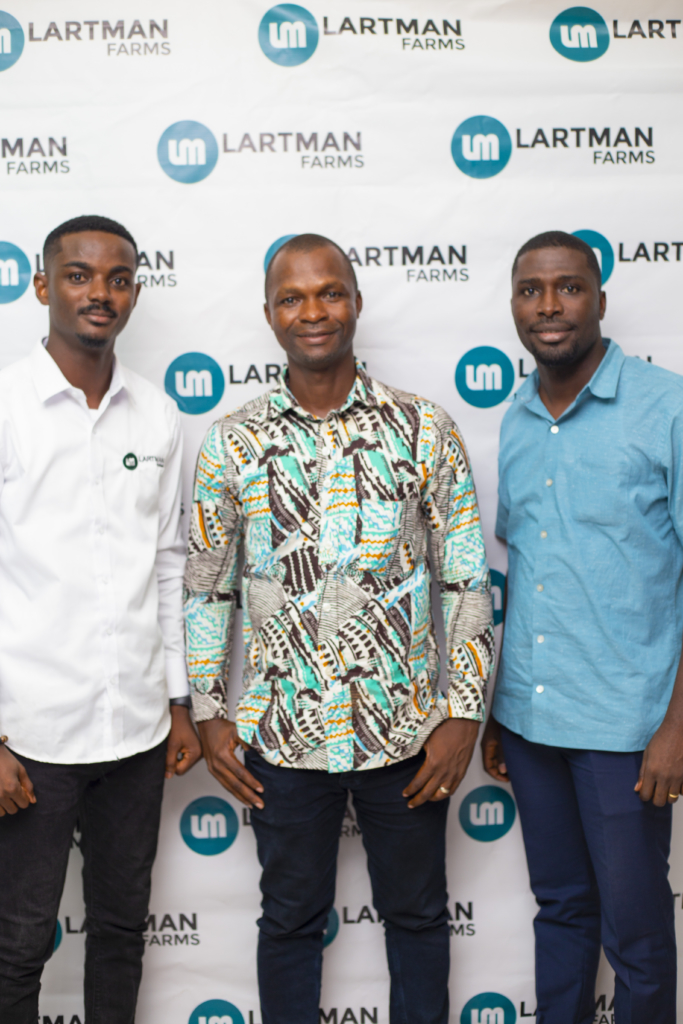Fish makes up 60 per cent of the average Ghanaian’s protein diet. It is the next most popular animal protein after chicken and beef and is expected to overtake them in a few years.
The fishing industry in Ghana is generally made up of marine, inland and aquaculture. With the recent decline in marine catches, aquaculture development has increased.
Ghana has a natural potential for aquaculture, yet after years of adoption, its contribution to the economy has been quite low.
According to Ghana’s 2018 budget statement, aquaculture contributed 3.5% to Real Gross Domestic Product, a decline from the 5.7% recorded in 2016.
Stakeholder in the sector believes that the growing population and increasing urbanisation in Ghana mean the market for Ghanaian aquaculture is also expanding, hence the need to establish Aquaculture Development Fund for fish farmers in Ghana.
The Startup capital will help small-scale fish farmers start new companies. In addition, this funding will help the farmers meet their initial costs, such as buying land, building ponds or buying equipment.
Lartman Farms CEO, Gabriel Nii Adjin Lartey, believes that this is the time to establish Aquaculture Development Fund for fish farmers in Ghana and urged the youth to venture into catfish farming to help drive sustainable economic growth.
He mentioned that all the conditions, weather, water, soil and market required to produce catfish are available in Ghana except for the capital to start the business.
“I believe that catfish farming will play a critical role in food security, job creation and youth unemployment, yet in Ghana, the youth seems disinterested in it.

“The vision is to train interested and passionate individuals with knowledge on how to produce quality fish for their communities and the country and also see the aquaculture sector as a good source of income in an expanding market.
“I believe sustainability could be ensured by setting up monitoring bodies that would be physically present on-site to monitor feeding practices and the introduction of other farm inputs rather than relying on reports from farmers that may not represent the reality on the ground,” he said.
He made these remarks during a two-day training organised in Accra to train about 30 small-scale fish farmers from different parts of the country to equip them with the requisite skillset on the practicality of setting up and managing their fish farms.
The Chamber of Aquaculture Ghana CEO, Jacob Adzikah, believes that it’s time government and private sector to help sustain the Aquaculture industry, which will help increase fish production in Ghana.
“It’s time to increase budgetary support for investment in the aquaculture sector; the move can partly address the youth unemployment situation, given the industry's enormous potential, which remains untapped.
“The sector can grow over 180,000 metric tonnes per annum, but at the moment, the average production is around 64,000 metric tonnes, so the gap is just too huge. We can still do better because we currently have the best ecosystem for fish production.
“This training is to help equip and upgrade the knowledge of these 30 small-scale fish farmers from different parts of the country; sustainability of aquatic food systems is interwoven between feed and nutrition, breeding technology, disease management and low-impact production to improve efficiency,” he said.
A lecturer at the Department of Marine and Fisheries Sciences University of Ghana, Legon, Dr Collins Duodo, believes that it’s time to diversify catfish into different products.
“Why don’t we have catfish Kebab in Ghana? It’s a simple way to expand and create jobs in the catfish sector.
You can also explore other value-added strategies such as smoking for those unable to reach the market in person,” he said.
A catfish farmer in the Bono Region, Boakye Yiadom Afrieye, who was one of the beneficiaries of the teaching, said the training has been an eye-opening one for him and his colleagues because the sector has a lot of opportunities the youth can take advantage of to create jobs for themselves especially when catfish is a local delicacy.
He hopes that the importation of frozen aquatic foods into the country can be reduced or completely removed through increased youth participation in aquatic food systems.
“Although quite a number of us had been farming catfish for some time, most of us had stopped because of numerous problems.
“With this two-day training which combined classroom learning with practical work in demonstration ponds; we are going back into production because most of the issues that forced us out of business were covered in this training,” he said.
Latest Stories
-
Let’s learn from ExxonMobil, high flyers must lead the way for mergers – AOMC Boss
39 seconds -
‘Let industry players play the game ‘ – AOMC boss slams political interference in oil sector
14 mins -
‘So many regulations, yet corruption prevails’ – Dr Riverson Oppong on OMC oversaturation
23 mins -
At least 24 dead after two boats capsize off coast of Madagascar
1 hour -
Madina MP lauds White Chapel Youth Group for championing peace ahead of elections
1 hour -
Man United settle for draw at Ipswich Town in Amorim’s first game in charge
2 hours -
GPL 2024/2025: Prince Owusu screamer earns Medeama win over Young Apsotles
2 hours -
BBC visits mpox clinic as WHO says DR Congo cases ‘plateauing’
2 hours -
Burning old TVs to survive in Ghana: The toxic trade in e-waste
2 hours -
Perfume boss admitted he ignored Russia sanctions
3 hours -
Wicked proves popular as opening set to be biggest for Broadway film
3 hours -
Nominee for agriculture secretary completes Trump cabinet
3 hours -
ECG urges prepaid customers to top up to last one month ahead of system upgrade
3 hours -
Three more tourists named in Laos methanol deaths
4 hours -
Betway Africa offers a once-in-a-lifetime ‘Play-on-the-Pitch’ experience at Emirates Stadium
4 hours

